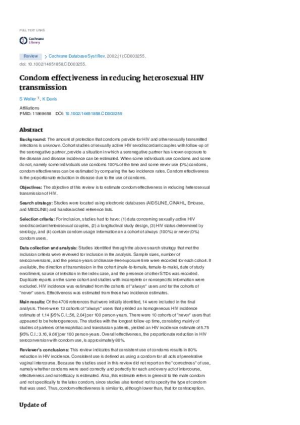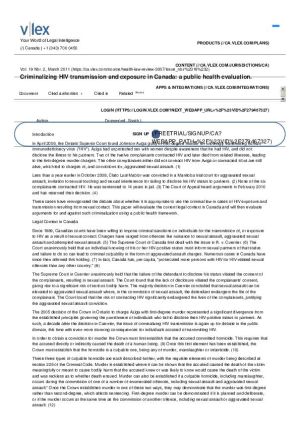Condom effectiveness in reducing heterosexual HIV transmission
Review of 14 rigorous studies to re-estimate condom effectiveness in reducing heterosexual transmission of HIV. Finds consistent condoms use results in an 80% reduction in HIV incidence, i.e 80% less than the particular act without condoms. Consistent use is defined as using a condom for all acts of penetrative vaginal intercourse.
Criminalizing HIV transmission and exposure in Canada: A public health evaluation
Considers HIV non-disclosure criminal cases in Canada through a public health framework, evaluating the arguments for and against the criminalization of HIV transmission and exposure.


